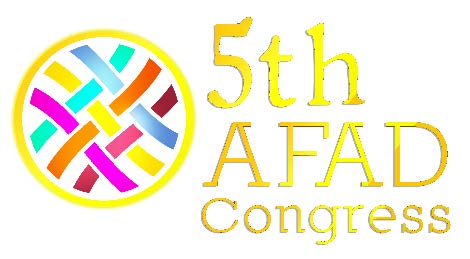 The fifth Congress of Asian Federation Against Involuntary Disappearances (AFAD), held in Manila from 22-25 September and attended by participants from ten countries – Bangladesh, Indonesia, Jammu and Kashmir in India, Nepal, Pakistan, Philippines, Sri Lanka, South Korea, Thailand and Timor-Leste renewed its commitment to fight against impunity and build a world without disappearances.
The fifth Congress of Asian Federation Against Involuntary Disappearances (AFAD), held in Manila from 22-25 September and attended by participants from ten countries – Bangladesh, Indonesia, Jammu and Kashmir in India, Nepal, Pakistan, Philippines, Sri Lanka, South Korea, Thailand and Timor-Leste renewed its commitment to fight against impunity and build a world without disappearances.
AFAD is strengthened by the solidarity messages of Mr. Ariel Dulitzky, Chair of the (UNWGEID) and Mr. Emmanuel Decaux, Chair of the UN Committee on Enforced Disappearance (UNCED) and friends from various regional and international organizations who recognized the significant contribution of AFAD in the fight against enforced disappearances in various ways.
In over 16 years of work, AFAD was able to contribute in the drafting and negotiation of the Convention Against Enforced Disappearances, campaigned for its signing and ratification resulting to the signing by the governments of Thailand and Indonesia. A domestic law criminalizing enforced disappearances was enacted in the Philippines in 2012 and Thailand and Nepal are in the process of drafting domestic laws.
However, the overall human rights situation in Asia demands more from AFAD.
Disappearances continue unabated especially in Afghanistan, China, Bangladesh, Jammu and Kashmir in India, Pakistan, Philippines, Syria, and Thailand (now under military rule). Draconian laws aimed to suppress dissent are instituted and extrajudicial killings, torture, arbitrary arrests and detentions of its citizens are on the rise. In particular, the governments of Bangladesh, Sri Lanka and Thailand are becoming more repressive, with the persecution of human rights defenders. Efforts of the international community to have an inquiry on war crimes and crimes against humanity in Sri Lanka are met with denial and non-cooperation from the Sri Lankan government. Special rapporteurs have been refused invitations by the governments of Bangladesh, India, Nepal, Philippines and Sri Lanka.
In post conflict countries like Timor-Leste, Indonesia and Nepal, authorities have yet to prioritize deliverance of justice to victims of human rights violations and measures have not been taken to ensure non-repetition of the crimes. Victims remain excluded and their rights to reclaim their dignity, justice, truth and reparation are not respected.
Families of victims continue to endure the pain of uncertainty of the fate and whereabouts of their loved ones while they battle the daily challenge of meeting their economic, social and cultural needs heavily impacted by enforced disappearance. With their men as the direct victims, the traditionally docile and domesticated women are forced to take on the gargantuan tasks as breadwinner, nurturer, mother and father to their children while searching for the disappeared, silently bearing their inner psycho-emotional wounds. Some of them faced various forms of discrimination especially in highly patriarchal and caste-based societies.
As AFAD further consolidates itself to better hurdle these challenges, Congress participants are deeply concerned of the ongoing persecution of human rights defenders working against impunity in relation to the crimes of torture, arbitrary detention, extrajudicial killings and enforced disappearances. It further calls on the UN Human Rights Council, UNWGEID, and the UNCED to exhaust all measures within their mandate to pressure Asian governments cited above to live up to their international human rights obligations and sign and ratify the Convention Against Enforced Disappearance.
In particular, it calls on:
-
the new government of Indonesia to realize its campaign promise to resolve disappearance and other human rights cases of the past;
-
the government of South Korea to immediately act on the plight of its citizens disappeared by North Korea;
-
the Philippine government to implement its laudable law criminalizing enforced disappearance;
-
the Timor-Leste government in cooperation with Indonesian government to prioritize the establishment of the enforced disappearance commission recommended by the Commission for Truth and Friendship;
-
the Nepali government to abolish amnesty provisions in its Truth and Reconciliation Commission Act and to bring it in line with international standards;
-
the government of Thailand to ratify the Convention and investigate the cases of enforced disappearances;
-
for the government of Bangladesh to withdraw the cases instituted against human rights defenders and cease restrictions on civil society organizations;
-
end hostilities and impunity in Jammu and Kashmir and allow credible investigations into cases of enforced disappearances;
-
to revoke newly passed laws of impunity providing legal cover to perpetrators of enforced disappearances in Pakistan, and;
-
end various repressive measures instituted by the government of Sri Lanka against the human rights defenders.
Congress participants return home mindful of the wisdom imparted by friends from Latin America. They bring home their message that achieving a world without disappearances is only possible if it becomes a concern of society and embraced by its peoples. AFAD will expand to other countries in Asia and will continue the struggle despite immense difficulties and challenges and will remain hopeful because “losing hope is the most criminal act” according to esteemed human rights defender Señor Roberto Garreton from Chile.
Signed by:
-
Odhikar (Bangladesh)
-
KontraS (The Commission for the Disappeared and Victims of Violence,(Indonesia)
-
IKOHI (Indonesian Association of Families of the Disappeared, Indonesia)
-
Association of Parents of Disappeared Persons (Jammu and Kashmir, India)
-
Advocacy Forum (Nepal)
-
Conflict Victims’ Society of Justice (Nepal)
-
Defence of Human Rights and Public Service Trust (Pakistan)
-
Families of the Disappeared (Sri Lanka)
-
Citizens' Alliance for North Korean Human Rights (South Korea)
-
Justice for Peace Foundation (Thailand)
-
Asosiasaun HAK (Timor-Leste)
